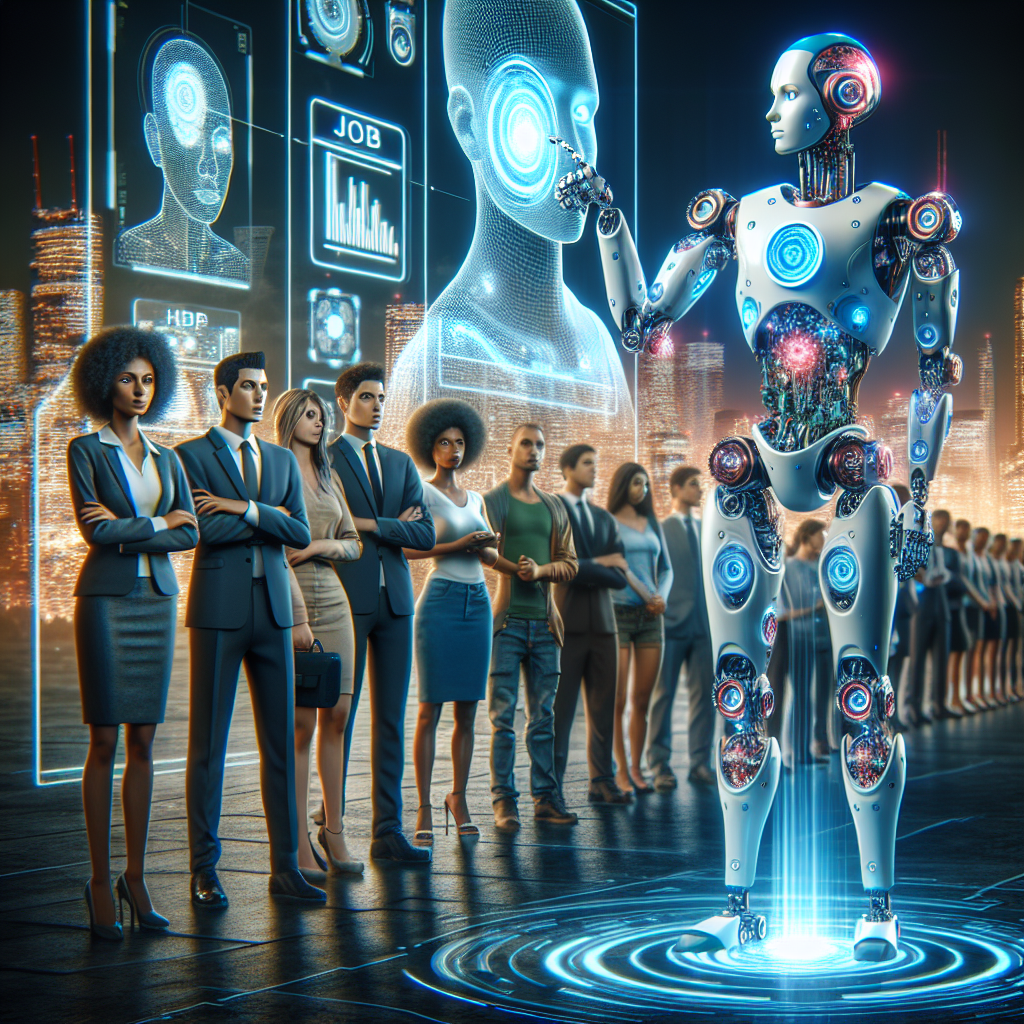The Future of Work: How AI is Changing the Job Market
Artificial Intelligence (AI) is revolutionizing the way we work. From automated processes to intelligent algorithms, AI is changing the job market in profound ways. With the rise of AI technology, many industries are experiencing significant shifts in the way tasks are performed and the skills needed to succeed in the workforce. In this article, we will explore how AI is changing the job market and what the future of work looks like in a world driven by AI technology.
AI in the Workplace
AI is being used in a wide range of industries to automate repetitive tasks, analyze data, and make predictions based on patterns. This technology is being used to streamline processes, improve efficiency, and make better decisions. From chatbots that provide customer service to algorithms that analyze financial data, AI is becoming an essential tool in the modern workplace.
One of the key ways AI is changing the job market is by automating routine tasks. This means that jobs that involve repetitive, predictable tasks are at risk of being replaced by AI technology. For example, in manufacturing, robots are increasingly being used to perform tasks that were once done by humans. As a result, workers in these industries may need to acquire new skills to remain competitive in the job market.
AI is also being used to analyze data and make predictions. In fields such as finance, healthcare, and marketing, AI algorithms are being used to analyze large amounts of data to make better decisions. For example, in healthcare, AI is being used to analyze medical images and identify patterns that may indicate disease. In marketing, AI is being used to analyze customer data and predict buying behavior. These applications of AI are changing the way decisions are made in these industries and are leading to more accurate outcomes.
The Future of Work
As AI technology continues to advance, the job market is likely to see significant changes in the coming years. According to a report by the World Economic Forum, AI is expected to create 58 million new jobs by 2022. However, it is also expected to eliminate 75 million jobs, resulting in a net loss of 7 million jobs.
The jobs that are most at risk of being automated by AI are those that involve routine tasks, such as data entry, clerical work, and assembly line jobs. However, AI is also creating new opportunities in fields such as data science, machine learning, and cybersecurity. These emerging fields require specialized skills that are in high demand in the job market.
In order to remain competitive in the job market of the future, workers will need to acquire new skills that are in demand in the age of AI. This may involve learning how to work with AI technology, acquiring skills in data analysis, or becoming proficient in programming languages such as Python and R. Workers who are able to adapt to the changing job market and acquire new skills will be well positioned to succeed in the future of work.
Frequently Asked Questions
Q: Will AI technology eliminate jobs in the future?
A: AI technology is expected to automate many routine tasks, leading to the elimination of some jobs. However, it is also expected to create new jobs in emerging fields such as data science, machine learning, and cybersecurity.
Q: How can workers prepare for the future of work?
A: Workers can prepare for the future of work by acquiring new skills that are in demand in the age of AI. This may involve learning how to work with AI technology, acquiring skills in data analysis, or becoming proficient in programming languages such as Python and R.
Q: What industries are most at risk of being disrupted by AI technology?
A: Industries that involve routine tasks, such as data entry, clerical work, and assembly line jobs, are most at risk of being disrupted by AI technology. However, AI is also creating new opportunities in fields such as data science, machine learning, and cybersecurity.
Q: How will AI technology impact the job market in the coming years?
A: AI technology is expected to create 58 million new jobs by 2022. However, it is also expected to eliminate 75 million jobs, resulting in a net loss of 7 million jobs. Workers who are able to adapt to the changing job market and acquire new skills will be well positioned to succeed in the future of work.
In conclusion, AI technology is changing the job market in profound ways. From automating routine tasks to analyzing data and making predictions, AI is reshaping the way we work. As the job market continues to evolve, workers will need to acquire new skills in order to remain competitive in the age of AI. By preparing for the future of work and acquiring in-demand skills, workers can position themselves for success in the changing job market.

